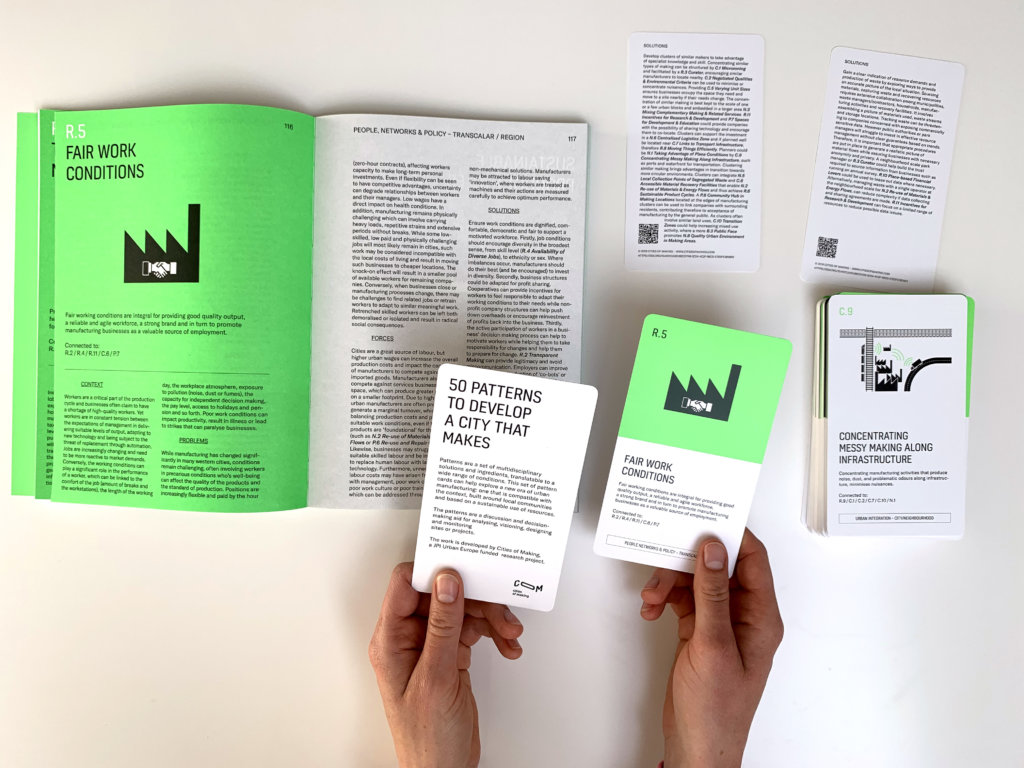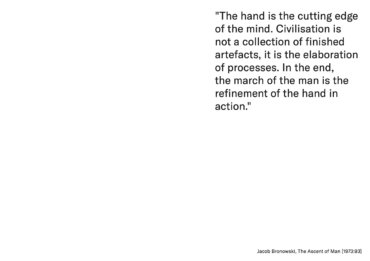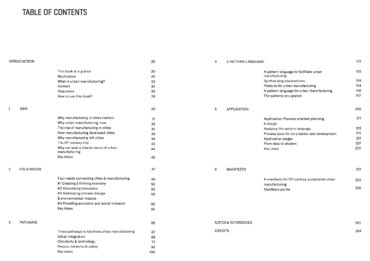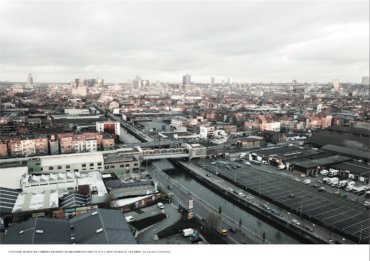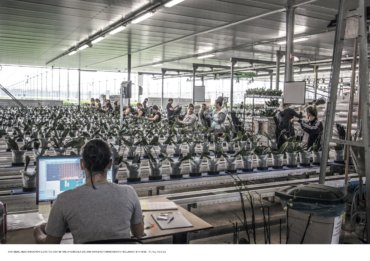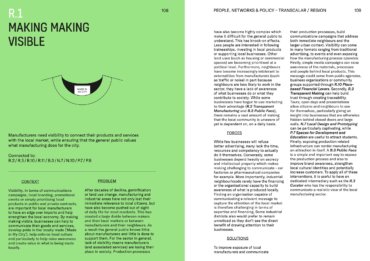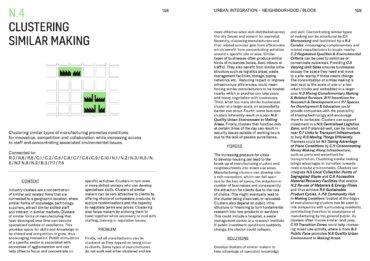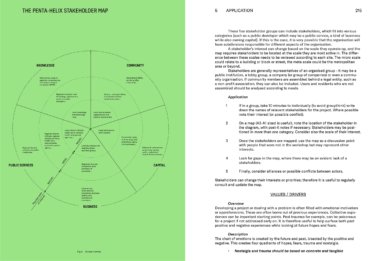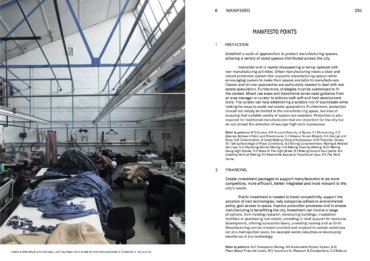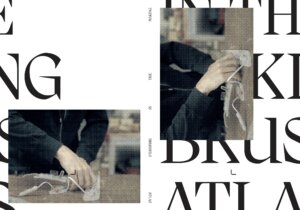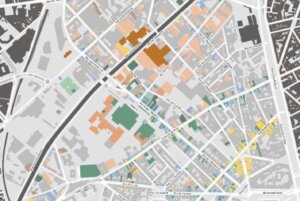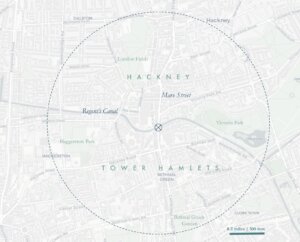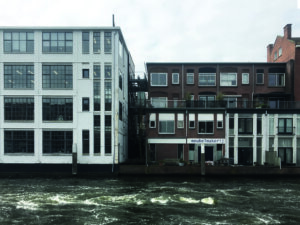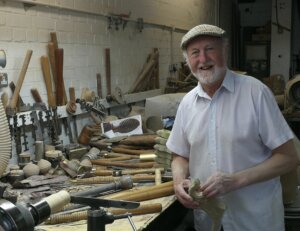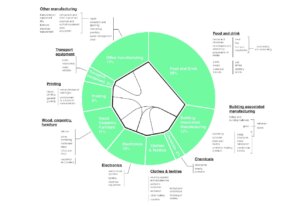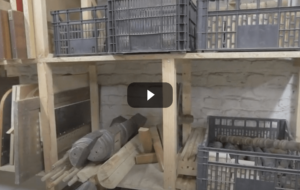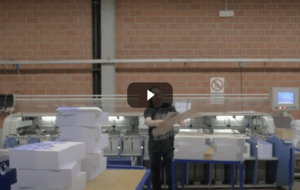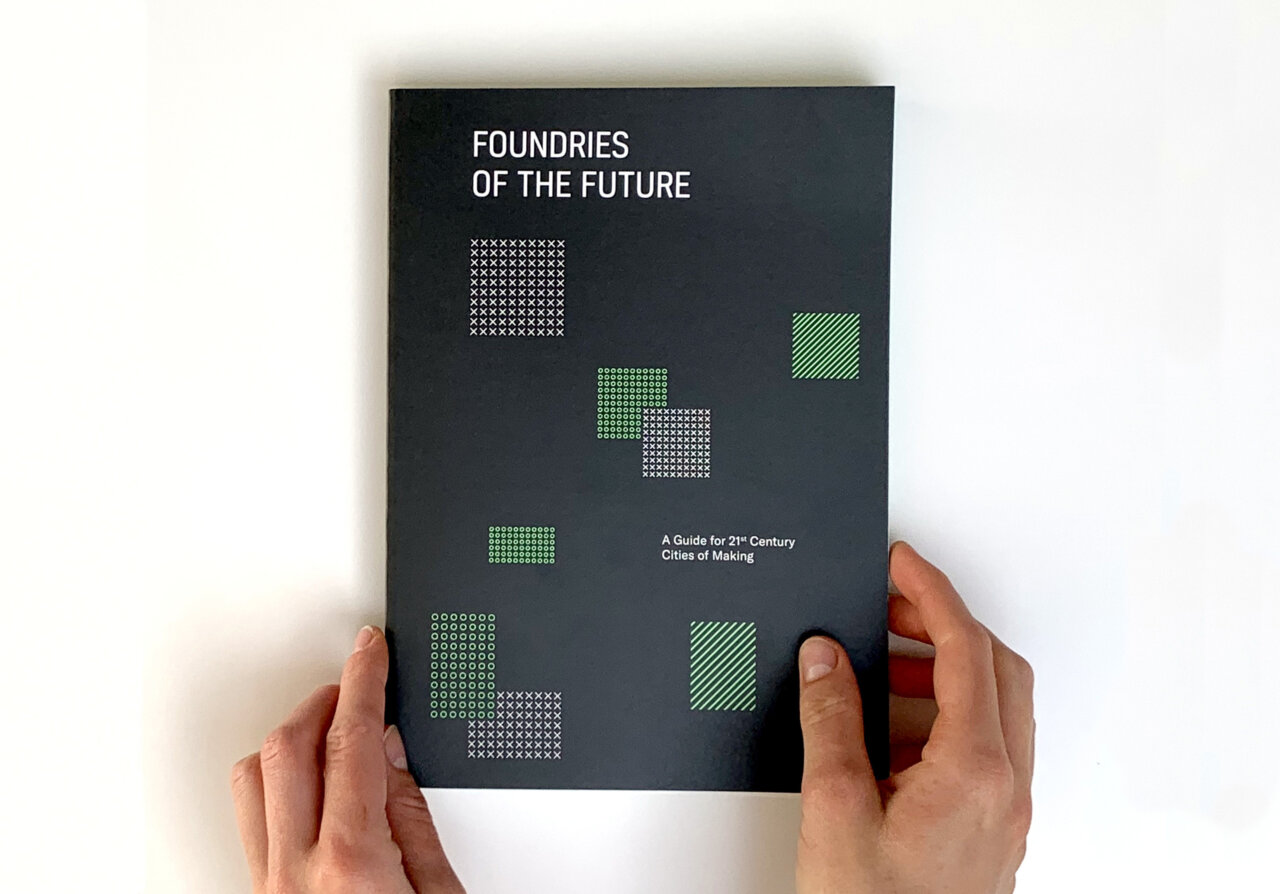
Foundries of the Future: A Guide For 21st Century Cities of Making.
Foundries of the Future: A Guide For 21st Century Cities of Making. Book cover.
The Cities of Making team is excited to release its book entitled 'Foundries of the Future: A Guide for 21st Century Cities of Making'. The book aims to show that despite perceptions, manufacturing is not in terminal decay in western cities. On the contrary, it is at the opening of a new chapter. Urban manufacturing is helping cities to be more innovative, circular, inclusive and resilient. Recently, with increasing interest in the circular economy, with cleaner and more compact technology, with more progressive building codes for mixed use, with increasing awareness of the impacts of social inequality and with a clearer understanding of the value chains between the trade of material and immaterial goods, cities across the world are realising that manufacturing has an important place in the 21st century urban economy.
Since the 1970s, cities world-wide have been witness to radical de-industrialisation. Manufacturing was considered incompatible with urban life and was actively pushed out. As economies have grown, public officials and developers have instinctively shifted their priorities to short-term, high-yielding land uses such as offices, retail space and housing. Inner-city growth from New York to London and even Seoul have generally come at the expense of land uses such as manufacturing or logistics.
While both enthusiasm for making is increasing and the value of manufacturing is becoming increasingly evident in cities, the topic remains extremely complex and challenging to manage. This book attempts to shed light on the ways manufacturing can address urban challenges, it exposes constraints for the manufacturing sector and provides fifty patterns for working with urban manufacturing. This book has been written as a manual to help politicians, public authorities, planners, designers and community organisations to be able to plan, discuss and collaborate by developing more productive urban manufacturing. The book is split into two parts.
We first cover an abridged history of the late nineteenth and early twentieth centuries, noting how European cities evolved rapidly by harnessing manufacturing, and then how the late twentieth century led to a radical shift in how cities work and think. We’re now at a crossroads between actors that do not see the need for manufacturing in cities and those that consider it vital for a prosperous urban future. Part of the tension comes from the fact that manufacturing is considered a ‘weak land use’ compared to activities such as real-estate development, which has been considered more financially attractive by many actors in the private and public sector. This real estate-oriented development narrative is increasingly regarded as short-sighted, but will not change without an alternative vision. We have therefore elaborated a narrative on how urban manufacturing responds to four specific challenges facing cities and how in turn manufacturing needs cities. In practice, planning and design for a topic like this is highly challenging.
The second part of the book is intended as a handbook. By synthesising our research and fieldwork conducted in a number of cities, we have encountered many similarities in terms of problems, challenges and solutions for urban manufacturing. Inspired by the seminal 1977 book, ‘A Pattern Language’ we have translated our findings into fifty patterns which help render the diversity of issues concerning manufacturing more tangible. As both teamwork and negotiation are necessary, exercises and methods are provided to use the patterns. Finally, we have set out twelve key action areas as possible starting points for supporting urban manufacturing.
Download the PDF version here.
To order a hard copy, the on demand service will print off a copy. A limited special edition print run has been made for public authorities, contact us if you’re interested in more information.
Contributions by:
Ben Croxford (UCL); Teresa Domenech (UCL); Birgit Hausleitner (TU Delft); Adrian Vickery Hill (Latitude); Han Meyer (TU Delft); Alexandre Orban (VUB); Victor Muñoz Sanz (TU Delft); Fabio Vanin (VUB); Josie Warden (The RSA).
Edited by Adrian Vickery Hill
